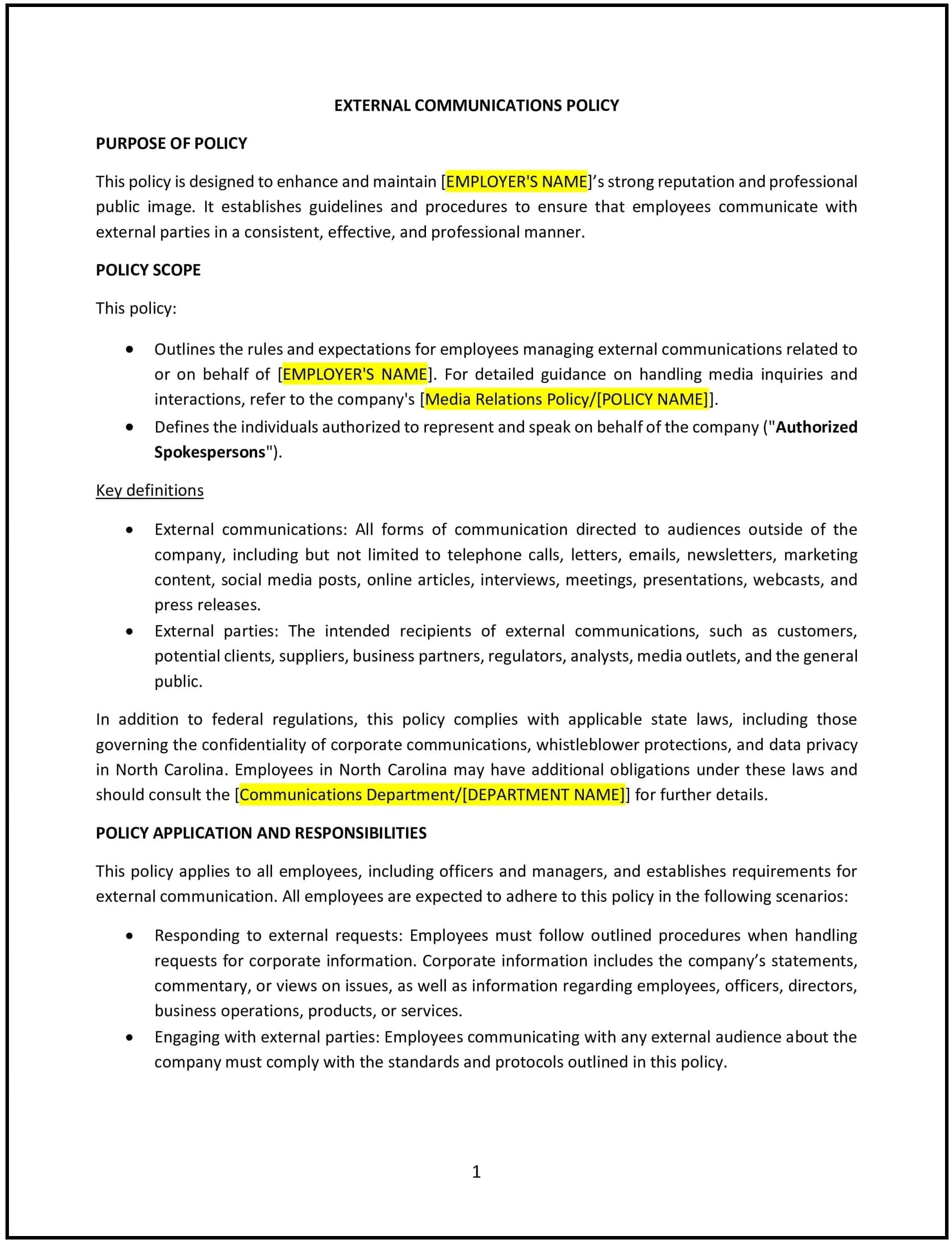External communications policy (North Carolina): Free template
Got contracts to review? While you're here for policies, let Cobrief make contract review effortless—start your free review now.

Customize this template for free
External communications policy (North Carolina)
An external communications policy helps North Carolina businesses establish clear guidelines for how employees communicate with the media, stakeholders, and the public. This policy outlines the process for handling press inquiries, sharing company information, and maintaining consistency in messaging to ensure the company’s reputation is protected.
By adopting this policy, businesses can ensure that all external communications are consistent, professional, and aligned with company goals and values.
How to use this external communications policy (North Carolina)
- Define who is authorized to communicate: Specify which employees or departments are authorized to communicate with external parties, such as the media, investors, and customers.
- Set guidelines for public statements: Establish clear guidelines for making public statements, including what can and cannot be shared with external parties.
- Establish media inquiry procedures: Define the process for responding to media inquiries, including the point of contact for press questions and how employees should handle interview requests.
- Address social media: Include guidelines for employees’ use of social media, particularly when they mention the company, and ensure that personal and professional accounts are kept separate.
- Reflect North Carolina-specific considerations: Ensure the policy complies with North Carolina’s laws on public communications, including regulations around public statements by businesses and government entities.
Benefits of using this external communications policy (North Carolina)
This policy provides several benefits for North Carolina businesses:
- Protects the company’s reputation: A clear communications strategy ensures that all external statements are consistent with the company’s values and objectives, preventing misunderstandings or negative publicity.
- Improves brand consistency: By standardizing communication, businesses can maintain a consistent message across all external channels, enhancing brand recognition and trust.
- Reduces legal risk: The policy helps businesses avoid legal risks related to unauthorized disclosures or misstatements by employees.
- Builds stronger relationships with stakeholders: Clear, professional communication with stakeholders fosters trust and strengthens relationships with customers, investors, and the media.
- Increases efficiency: With a designated process for handling external communications, businesses can respond quickly and effectively to media inquiries and public requests.
- Communicate the policy clearly: Ensure all employees understand the company’s external communications procedures and know who to contact for press or media inquiries.
- Provide media training: Offer training to designated spokespersons and key employees on how to handle media inquiries, maintain professionalism, and stay on message.
- Monitor compliance: Regularly check to ensure that employees are adhering to the policy and that no unauthorized information is being shared externally.
- Review the policy regularly: The policy should be reviewed periodically to ensure it remains relevant to North Carolina’s regulations and the evolving needs of the business.